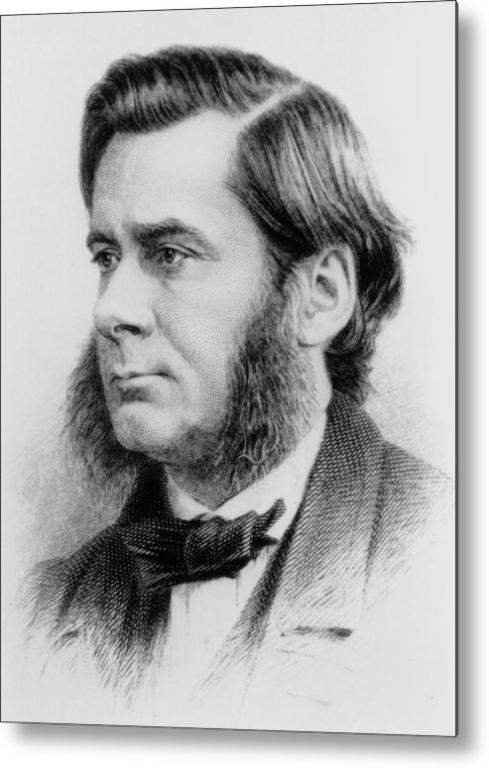
(Engraving from 1874)
Thomas Henry Huxley died this day, the 29th of June, in 1895.
I kind of think of it as a feast for a new universalist kind of saint.
Huxley was a biologist and anthropologist, today best remembered as “Darwin’s Bulldog.” Where Darwin was reticent, Huxley was aggressive, and more than happy to engage in debate regarding evolution. His famous debate with Bishop Samuel Wilberforce is credited as one of those moments leading toward a broader embrace of the theory by the larger public.
He is also the grandfather of Aldous and Julian Huxley.
Huxley was a towering intellectual, endlessly curious. His coining the term agnostic was not an assertion of a passive not knowing, but of deep and abiding curiosity. Something that I see as at the heart of the interior quest.
It should therefore not be surprising he took at least a passing interest in Buddhism. Huxley’s meditation Evolution and Ethics represents an idealized vision of Buddhism. This more abstract and idealized Buddhism was not uncommon among nineteenth century Western intellectuals. Still, errors and all, I do love that he actually read and thought about Buddhism.
“With just insight into human nature, Gautama declared extreme ascetic practices to be useless and indeed harmful. The appetites and the passions are not to be abolished by mere mortification of the body; they must, in addition, be attacked on their own ground and conquered by steady cultivation of the mental habits which oppose them; by universal benevolence; by the return of good for evil; by humility; by abstinence from evil thought; in short, by total renunciation of that self-assertion which is the essence of the cosmic process.
“Doubtless, it is to these ethical qualities that Buddhism owes its marvelous success. A system which knows no God in the western sense; which denies a soul to man; which counts the belief in immortality a blunder and the hope of it a sin; which refuses any efficacy to prayer and sacrifice; which bids men look to nothing but their own efforts for salvation; which, in its original purity, knew nothing of vows of obedience, abhorred intolerance, and never sought the aid of the secular arm; yet spread over a considerable moiety of the Old World with marvelous rapidity, and is still, with whatever base admixture of foreign superstitions, the dominant creed of a large fraction of mankind.”
In many ways Huxley’s Buddhism was more a projection of a new secular and scientific spirituality on the ancient tradition than a faithful presentation of what the Buddha actually taught. However, what Huxley offered was an insight into something that has in fact been birthing for sometime now.
And it is project in process. Deadends appear. Mistakes. Some terrible. And, at the same time, amazing vistas emerge. There really is something wonderful in Huxley’s agnosticism.
As we read in the Zen literature, “not knowing is most intimate.”
For me what Huxley brought forth was a part of some larger project, an emerging naturalistic mysticism, a new universalism.
So. Incense and candles. And maybe lifting a glass in his honor.
Thinking of Thomas, a saint of Not Knowing…













